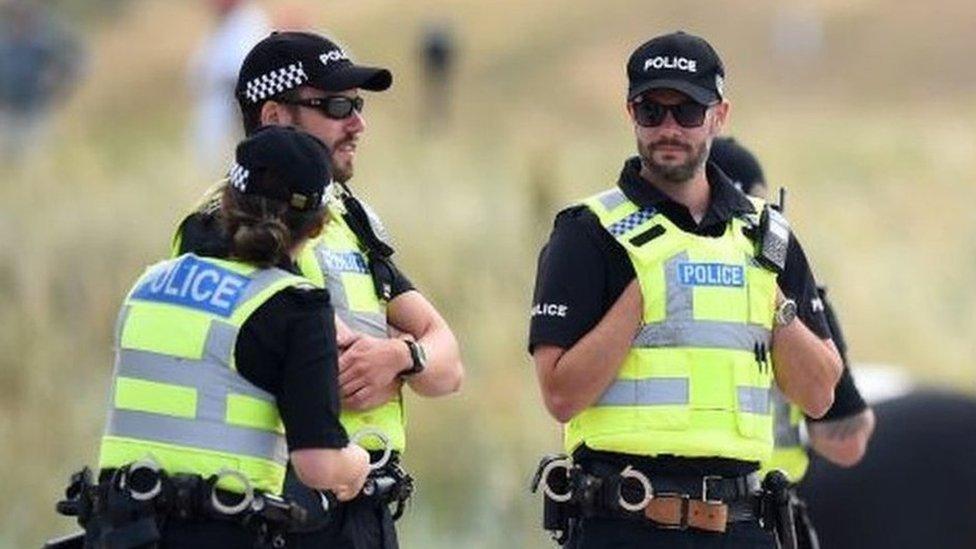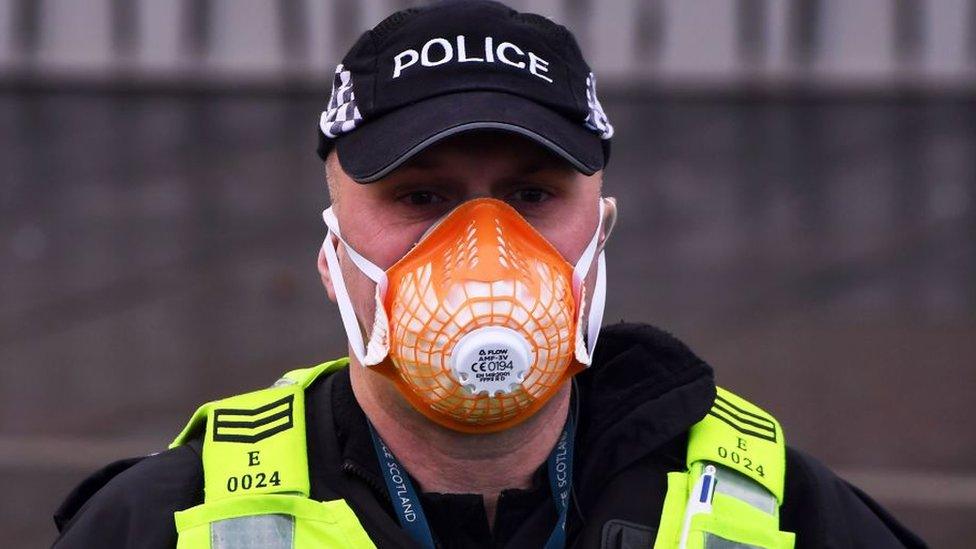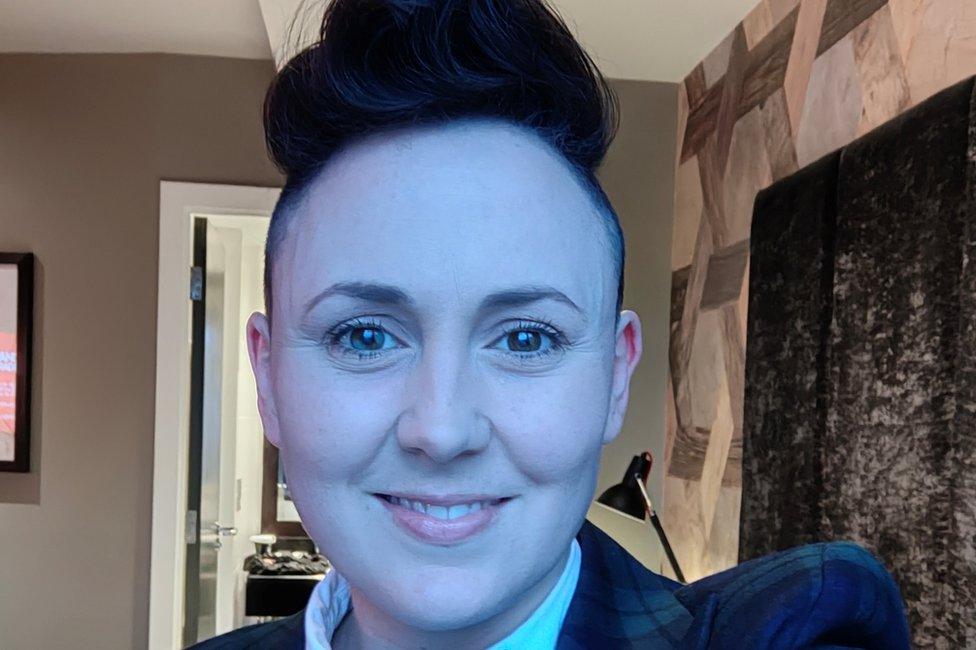Police Scotland no-beards policy cannot start on planned date
- Published

Police Scotland's clean-shaven policy cannot start on 29 May as originally planned, the BBC understands.
The force wants frontline officers and staff to shave off beards so they can wear specially-fitted FFP3 facemasks.
The Scottish Police Federation (SPF) told the BBC it had been inundated with complaints and a consultation on the policy will now continue into June.
Police Scotland has committed to undertaking a full consultation ahead of implementation.
The BBC asked Police Scotland to confirm the delay but the force said it would not comment on dates.
Police Scotland announced the plan in April in a message posted on its internal website by Assistant Chief Constable Alan Speirs.
He said staff associations would be consulted ahead of the policy's planned introduction at the end of May.
But the SPF, which represents police officers, said the consultation would continue into June.

The clean-shaven policy is to allow officers to wear protective masks
Four male officers from road policing are taking legal action against Police Scotland on the grounds of discrimination and disability.
The BBC understands the men were ordered to shave last year before the force-wide policy was proposed. They were marked as non-deployable as a result of not shaving.
Amanda Buchanan, a legal director at Levy and McRae Solicitors, is representing them.
She said protecting employees was a very important and legitimate aim but questioned the proportionality of the policy.
Ms Buchanan said there might be other options that allowed respect for the officers' right to express their identity and their personal choice to have a beard.
"I think it's similar to saying for a female, perhaps why wouldn't you have short hair, just cut your hair," she said.
"It's how you choose to express your own identity, your personality and it's very important and it's part of your human rights."
Police Scotland said it was unable to comment on ongoing legal matters.
The new clean-shaven policy will have exemptions for officers and staff who cannot shave for religious, cultural, disability or medical reasons.
Police Scotland said it was seeking to introduce an alternative type of respiratory protection for those people

Ash Toner-Maxwell said it was clear the proposed policy was causing concern for many LGBTI officers
The Scottish LGBTI Police Association's general secretary Ash Toner-Maxwell said it was clear the proposed policy was causing many of its members significant concern.
In a statement, she said: "Officers and staff are not required under equality law to disclose a disability, religious or cultural view.
"We are concerned officers and staff may feel pressured into disclosing a protected characteristic by keeping their facial hair and electing to wear the proposed 'alternative' face mask.
"This is of particular concern when considering our transgender colleagues. The policy may impact a trans man's mental health whose facial hair is a significant part of their transition."
She said for some members, a beard or facial hair is an important part of how they express themselves and that some gay, bisexual and transgender men sport facial hair or beards."
In a statement, ACC Speirs said the safety of officers was a priority and FFP3 masks - which are face-fitted and require users to be clean shaven - offered the most appropriate and effective respiratory protection.
He said the risk from coronavirus had lowered but there were wider risks such as fires, road accidents and chemical incidents which require protective equipment to be worn.
The assistant chief constable said he understood the frustrations among those affected on the frontline but the policy was absolutely necessary to protect officers and staff from serious health risks.
He said: "We are listening to a wide range of views on this matter and will undertake full consultation with all relevant staff associations ahead of implementation.
"A full human rights impact assessment is also being carried out as part of this process."
Related topics
- Published5 May 2023
